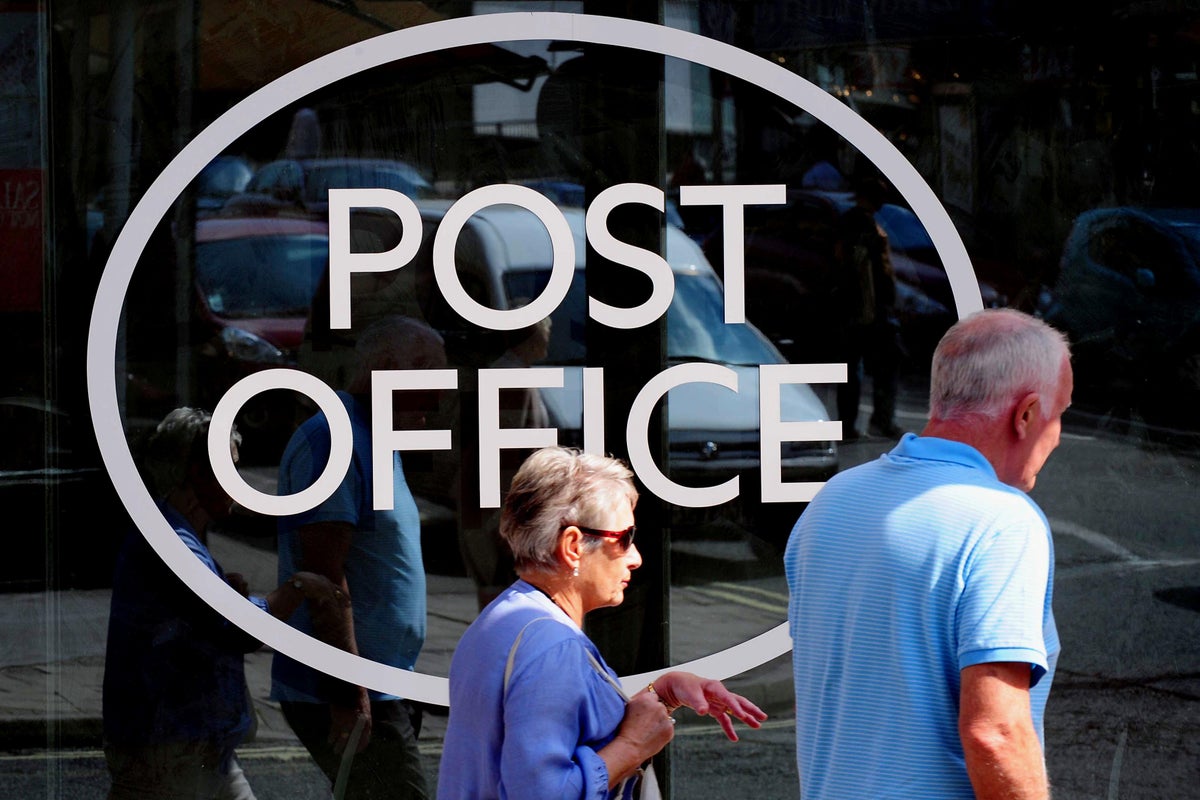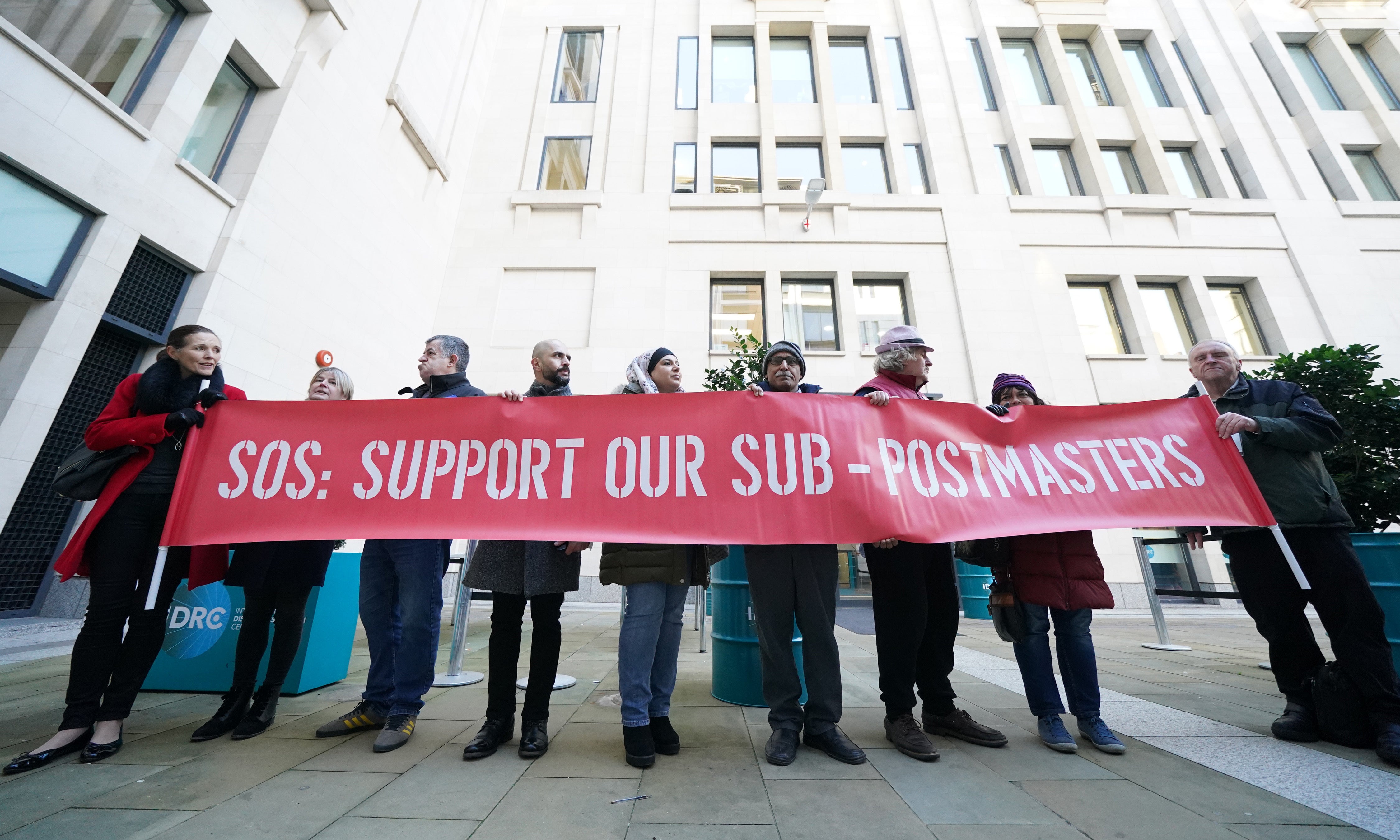
Turning the Post Office into an employee-owned organisation could not be considered until 2030, the Government has revealed, as it could also scrap the 11,500-branch requirement as part of a major review into its future.
The current level of taxpayer funding for the Government-owned postal service is unsustainable, the Department for Business and Trade (DBT) said in a new Green Paper on the organisation’s future.
This sets out its views on how the Post Office should be run in the future, including possible changes to its ownership structure.

The DBT said turning the organisation into a “mutual”, whereby it is collectively owned by its members, was a possible long-term option.One version of this structure could see membership limited to postmasters and franchisees, or it could also include customers, employees and communities.
But the Government said the Post Office “should be financially and operationally stable before mutualisation can be considered”, meaning it would need to be profitable and cash-generative.
It is also in the process of working to replace its Horizon IT system following the scandal, in which about 1,000 people are thought to have been wrongly prosecuted and convicted over shortfalls in their branches caused by faulty software.
This means the earliest date to consider mutualisation is thought to be around 2030, the DBT said.
It could then take a further three years to implement, with it being a “complex, time consuming and potentially expensive process”, the Green Paper read.
The Government said another long-term option for the ownership structure is a charter model, similar to the BBC and universities, which sets out an organisation’s public purpose and rules for how it operates.
Meanwhile, the paper found that the Post Office’s requirement to run at least 11,500 branches across the UK had become “more challenging and costly” due to rising labour costs against declining visitors across the network.
This has resulted in it requiring more subsidies from the Government in recent years, it said.
The DBT said one option for the future of the Post Office network was to scrap the minimum branch requirement, meaning it could address loss-making branches and focus on bigger, full-service sites.
But it would still have to ensure that at least 99% of the population stay within three miles of a full-service branch under this option.
The Government stressed that its current level of funding to the Post Office is “unsustainable” in the long-term and that the organisation should be able to self-fund investment in its network and postmasters.
The Post Office made a trading profit of £22 million in the 2023-24 financial year, according to its latest annual report.
But it is estimated to swing to a trading loss of £24 million for the latest year and £60 million over the 2025-26 financial year.
However, the Government plans to award a new subsidy package worth £118 million to fund a transformation plan and further investment that could improve its services and its financial position.
Alongside the Green Paper, the DBT said it had launched a three-month consultation period, giving customers and postmasters the opportunity to have a say in how the service is run.
Post Office minister Gareth Thomas said: “Post Offices continue to be a central part of our high streets and communities across the country.
“However, after 15 years without a proper review, and in the aftermath of the Horizon scandal, it’s clear we need a fresh vision for its future.
“This Green Paper marks the start of an honest conversation about what people want and need from their Post Office in the years ahead.”
During a statement to the Commons, Mr Thomas said the Post Office has a “considerable opportunity to do more in terms of providing services”.
He went on to say: “If we could improve the way in which the banks work with the Post Office, perhaps we could see a much more significant role for the Post Office in terms of the provision of banking services on far more high streets up and down the UK.”
Neil Brocklehurst, Post Office’s chief executive, said: “We now have a once-in-a-decade opportunity to have a national conversation about the future of our post offices and their role in supporting communities across the UK.
“This Government consultation is a vital part of shaping what the future of Post Office could, and should, look like.”
Dave Ward, general secretary of the Communication Workers Union (CWU), criticised the Green Paper for “prioritising further cost-cutting and offering no vision for its future”.
“Successive governments have failed the Post Office, its workers and customers – choosing to use government subsidies for planned redundancies, closures and so-called transformation plans that are nothing more than managed decline,” he said.
Mr Ward said the CWU was advocating a “joint venture ownership model” that would bring the Post Office and Royal Mail back together and give postmasters greater say over the governance and direction of the company.



.jpg?w=600)



